You may be familiar with THC, the cannabinoid responsible for the psychoactive effects of marijuana. However, THC wouldn’t be possible with its predecessor, tetrahydrocannabinolic acid (TCHA). Even though THCA turns into THC, can THCA get you high? Let’s discuss the effects of THCA, what makes it different from THC, and some of the most popular high THCA hemp strains!
What Is THCA?
The benefits and psychoactive effects of cannabis are thanks to the many unique compounds found in the plant. Cannabinoids are a class of chemicals that are abundant in cannabis.
When consumed, they interact with our body's endocannabinoid system, which plays a crucial role in regulating numerous functions, including mood, sleep patterns, appetite, and more.
What makes cannabinoids truly unique is that they are one of the only classes of compounds that can bind directly to our body's cannabinoid receptors. This means that they have the ability to produce powerful effects on our minds and bodies.
However, not all cannabinoids are created equal. THC, for example, is the psychoactive compound that is responsible for the "high" associated with cannabis use, while CBD (cannabidiol) is a non-intoxicating compound that supports balance in the body.
Now, what sets THCA apart from other cannabinoids is that it's actually a precursor to THC. When cannabis grows, it actually doesn't contain much THC at all. However, raw cannabis is packed with THCA. It's only through decarboxylation, a process of heating up the plant material, that THCA gets converted into THC.
Does THCA Make You High?
The answer to the question, “Does THCA get you high” is a loaded answer. Technically, no.
THCA by itself does not produce the high that is commonly associated with marijuana use.
In fact, THCA is non-intoxicating until it is heated or decarboxylated. Then, THC is produced, and the plant matter becomes mind-altering. So, while THCA didn't get you high, technically, it did play a role in it!
How Does THCA Turn Into THC?
Decarboxylation is a chemical process that occurs when something rich in carboxylic acids, like THCA, is exposed to heat. This process removes a carboxyl group from its molecular structure. Hence the whole de-carb thing.
When this happens, the plant releases carbon dioxides which results in the formation of a new compound. In the case of THCA, decarboxylation converts it into THC.
When you heat up THCA, it starts to break down into THC and carbon dioxide. This is why it's important to apply heat to your cannabis in some way in order to activate the THC. This process can happen naturally over time as the plant dries and ages, but it's much more efficient to speed things up with heat.
One common way to decarboxylate cannabis is by putting it in an oven and baking it at around 220°F for about 25-30 minutes. Results can vary depending on the temperature of the oven and the desired end product.
Lab reports for cannabis typically include information on the percentage of THCA present in the sample. This is because THCA is the dominant cannabinoid in fresh or non-decarboxylated cannabis, and it's important to know how much THCA is present in order to estimate the potential potency of the cannabis.
Lab reports will typically list the total THC content, which includes both THC and the THC that results from the decarboxylation of THCA.
The equation for how much THCA gets converted into THC when cannabis is heated is:
Total THC = THC + (THCA x 0.877)
The number 0.877 denotes the weight ratio between THC and THCA. This means that for every part of THCA, approximately 0.877 parts of THC will be produced.
However, it's important to remember that this equation assumes that all of the THCA gets converted into THC, which may not always happen in reality. This can make it difficult to know for sure how potent a batch of cannabis is, especially since different strains and growing conditions can affect the final results.
Does THCA Become THC When Smoked?
Yes, THCA can be converted into THC when it is smoked. Lighting up flower or heating oil via a battery causes decarboxylation to occur. This means that the carboxyl group (-COOH) is removed from THCA, and it becomes THC.
So, while smoking does involve heating up the plant material, it's important to note that not all of the THCA in the cannabis will be converted to THC during the smoking process. The high heat and short duration of the smoking process can mean that some THCA may still remain unconverted. It may also destroy some cannabinoids in the process.
With that said, the majority of the THCA in cannabis will likely be converted to THC through smoking. That’s why smoking is such an effective way to experience the psychoactive effects of THC.
Benefits of THCA
Just because it doesn't cause a high doesn't mean that THCA can't be beneficial. Research on the effects of THCA is still in the early stages but looks promising so far.
THCA has been observed to bind weakly to the CB1 receptor, which is primarily found in the brain and central nervous system. As a result, THCA might support healthy brain pathways. Remember, lighting flower will turn THCA to THC, which will promote a completely different experience.
Additionally, THCA has been observed to bind to the CB2 receptor, which is found primarily in the immune system and peripheral tissues. Therefore, some might find THCA useful for supporting daily muscle and joint comfort.
Remember, lighting or baking flowers will convert most THCA to THC. When this happens, you will have a completely different experience. If you would like to experience the effects of THCA over THC, make sure you are consuming raw cannabis or an extract with high levels of THCA.
High TCHA Hemp Strains
Many cannabis strains have high levels of THCA, as it is the main cannabinoid found in fresh or non-decarboxylated cannabis. However, some strains may have higher levels of THCA relative to other cannabinoids. THCA levels are dependent on many factors, including the climate where the plants were grown, sunlight and water access, and how the flowers were processed.
Levels of THCA will vary by strain, and even by plant within the strain. However, these are some common high THCA hemp strains:
- Doug's Varin: This rare strain is known to have some of the highest THCA levels of any cannabis strain, with some samples testing as high as 30% THCA.
- Blood Diamond: This indica-dominant hybrid strain is known to support relaxation, and boasts up to 26% THCA.
- Willie Nelson: This sativa-dominant strain is known for its high THCA content and energizing effects. It tends to have around 25% THCA content.
- Jack Herer: This popular sativa strain is known for its uplifting, energizing effects, which is supported by up to 23% THCA levels.
- Canna-Tsu: This hybrid strain is known for its high levels of both CBD and THCA, with around 20% THCA levels on average.
Can THCA Get You High?
While THCA is a precursor to THC, it does not produce intoxicating effects on its own and cannot get you high in the way smoking marijuana does. This is because THCA cannot bind to the CB1 receptor in the same way that THC does.
THCA only becomes THC when it is heated or decarboxylated, such as when it's smoked, vaporized or baked. Therefore, consuming raw or unprocessed cannabis, which contains THCA, will not produce the same effects as consuming cannabis that has been decarboxylated.
Instead, THCA is believed to support a good mood and overall wellness. Just make sure the product contains raw cannabis or extracts!








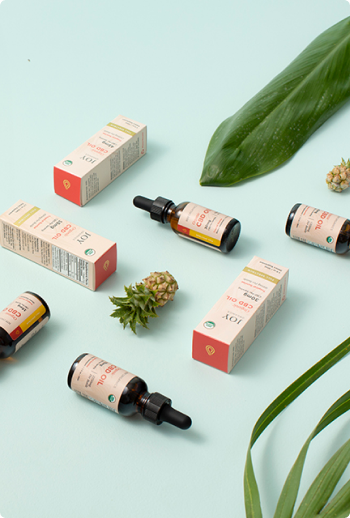
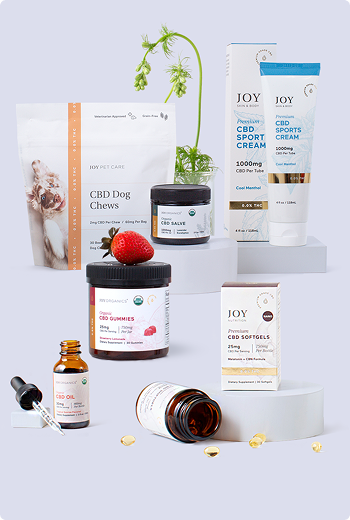
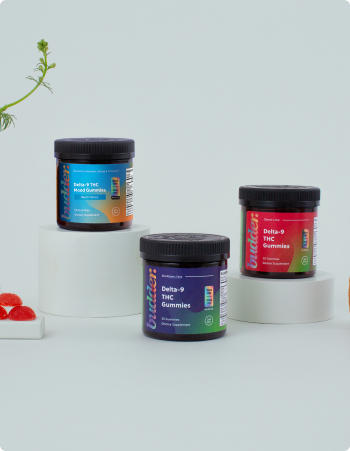
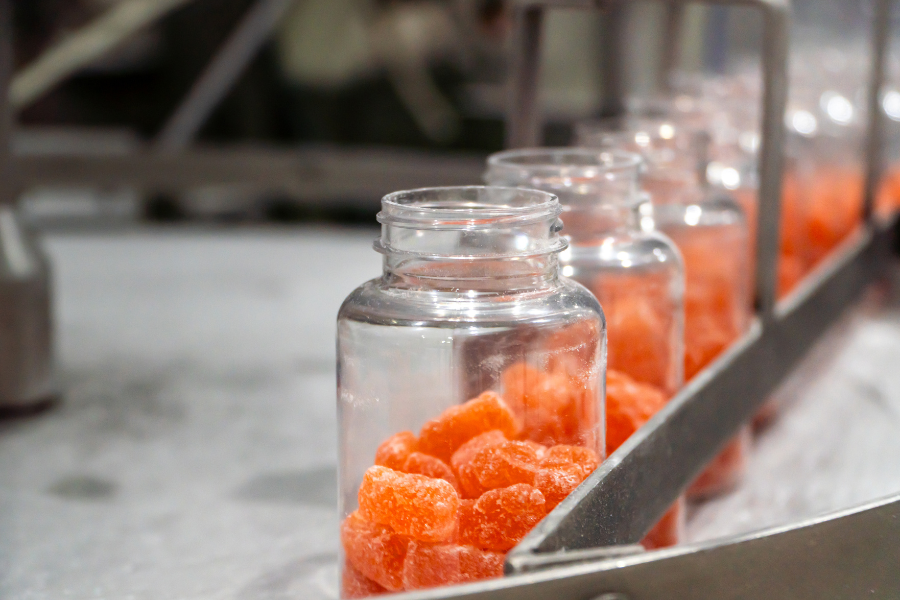














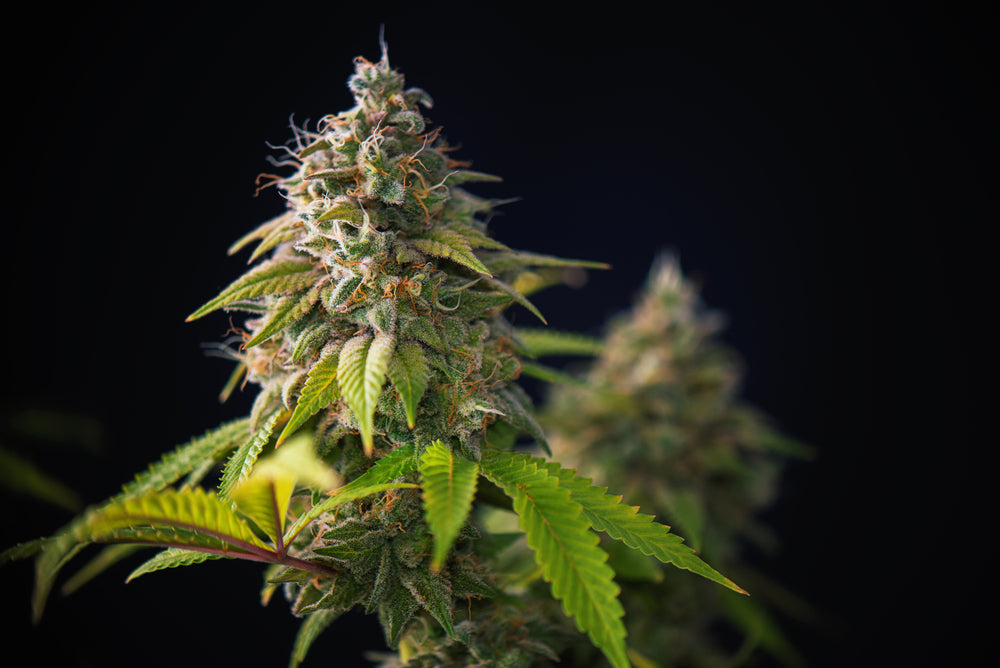

























Join in on the Conversation
Your email address will not be published. Once your comment is approved, it will be published.